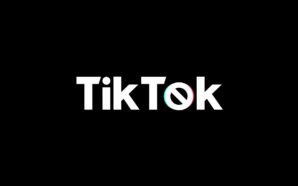
Credit: Unsplash
Meta, the parent company of Facebook, is under scrutiny from the European Commission for allegedly breaching EU antitrust regulations with its new ad-supported subscription service. The Commission has criticized Meta’s approach, labeling it a “pay or consent” model. This setup requires users to choose between paying for an ad-free experience or consenting to the processing of their data for personalized advertising.
The service, introduced for Facebook and Instagram in Europe last year, was Meta’s response to regulatory concerns about user privacy and data collection practices. However, the European Commission’s preliminary view suggests that this model infringes upon the EU’s Digital Markets Act (DMA) by failing to offer a less personalized but equivalent service that does not rely on extensive data collection.
“In the Commission’s preliminary view, this binary choice forces users to consent to the combination of their personal data and fails to provide them a less personalized but equivalent version of Meta’s social networks,” the Commission stated.
Meta has defended its ad-supported subscription model, asserting that it aligns with the directives of the European Court of Justice, which ruled last year that companies could offer alternative versions of their services that do not depend on data collection for advertising. A Meta spokesperson stated, “We look forward to further constructive dialogue with the European Commission to bring this investigation to a close.”
The Commission’s investigation highlights two main concerns with Meta’s service: first, that it does not offer an equivalent service that utilizes less personal data for advertising personalization; and second, that it does not allow users to exercise their right to “freely consent” for their data to be used in targeted ads.
Under the DMA, which became enforceable in March, companies can face substantial fines for non-compliance. Meta could face a fine of up to $13.4 billion if found in breach, based on its 2023 annual earnings. For repeated violations, this penalty could increase to 20% of the company’s global annual revenue.
Following the preliminary findings, Meta has the opportunity to present its defense in writing. The Commission’s investigation, launched in March alongside probes into Apple and Alphabet, is expected to conclude within 12 months.
-
How France’s AI Trailblazer is Taking on OpenAI and Reshaping the AI Landscape Mistral AI is making waves in...
-
Simple and Effective Ways to Create a Personal Brand That Stands Out Online and Opens New Opportunities In today’s...
-
The journey of mobile phones from basic communication devices to AI-powered supercomputers shaping modern society Mobile phones have come...
-
Credit: Unsplash Apple Introduces a Budget-Friendly iPhone Packed with AI, a Powerful A18 Chip, and a Sleek New Design...
-
Google Expands Its AI-Powered Image Remixing Tool, Making Creative Customization Easier for Users Worldwide Google is bringing its fun...
-
A look at how transportation has evolved from horse-drawn carriages to the modern electric vehicles of today. The automobile...
-
Fitbit settles with CPSC and agrees to pay a $12.25 million fine over smartwatch burn incidents Fitbit has reached...
-
Credit: Unsplash How Memes and Chaos Defined a 14-Hour Saga The weekend was a whirlwind for TikTok users. On...
-
Credit: Unsplash TikTok in Musk Talks Until Then Here’s Where to Get Your Short Video Fix The clock is...
-
A Critical Breach with Serious Implications for National Security The U.S. Treasury recently confirmed a significant cyberattack attributed to...
-
Astronauts Face Another Delay in Their Extended Space Stay NASA astronauts Butch Wilmore and Suni Williams have just received...
-
Google’s New Chip and It’s Exciting Revelation Google’s latest announcement about its quantum computing chip, Willow, has definitely turned...




















